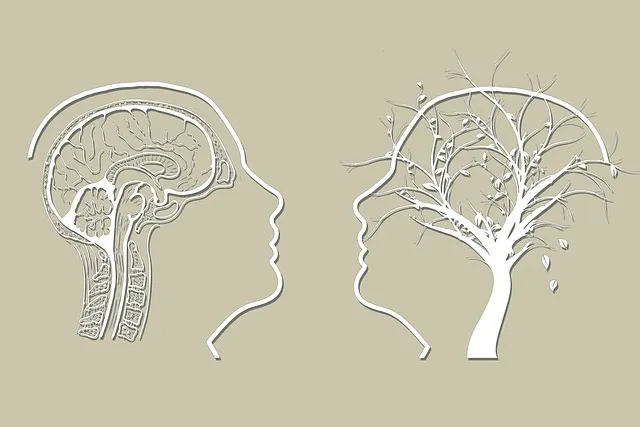Kaiser Permanente Denver's Community Outreach Program addresses cultural competency in healthcare, recognizing its impact on diverse communities. By training staff to understand and respect varied backgrounds, beliefs, and values—including self-awareness exercises to recognize biases—they improve patient connections, communication, and outcomes, especially in managing stress-related issues. The program focuses on breaking mental health stigma, which hinders access due to cultural beliefs, by offering tailored services that foster safe spaces for expression and culturally sensitive healing. Through crisis intervention guidance, workshops, and role-playing, healthcare providers gain skills to handle diverse mental health concerns prevalent in the Denver community under their Kaiser Permanente mental health coverage. Evaluating program success through patient outcomes and feedback ensures continuous improvement.
In today’s diverse healthcare landscape, cultural competency among providers is no longer an option but a necessity. This article explores the critical role of cultural competency training for healthcare professionals, focusing on mental health care. We delve into the impact of mental health stigma across cultures and highlight innovative approaches, such as Kaiser Permanente Denver’s inclusive model. Additionally, we examine effective training strategies and methods to measure success in enhancing cultural competency, ensuring equitable care for all patients, including those under Kaiser Permanente’s mental health coverage in Denver.
- Understanding Cultural Competency in Healthcare: A Necessity in Modern Practice
- The Impact of Mental Health Stigma and Its Disparities Across Cultures
- Kaiser Permanente Denver's Approach to Inclusive Mental Health Care
- Training Strategies: Equipping Providers for Diverse Patient Populations
- Measuring Success: Evaluating the Effectiveness of Cultural Competency Programs
Understanding Cultural Competency in Healthcare: A Necessity in Modern Practice

Cultural competency in healthcare is no longer a nice-to-have but an essential requirement in modern medical practice. As diverse communities become the norm, healthcare providers must be equipped to deliver care that respects and understands varied cultural backgrounds, beliefs, and values. This is especially crucial when addressing mental health concerns, as Kaiser Permanente’s Denver region has recognized. The organization has implemented a robust Community Outreach Program that emphasizes cultural competency training for its staff.
This training goes beyond mere knowledge of different cultures; it focuses on fostering self-awareness exercises to help providers recognize their own biases and assumptions. By integrating these practices, healthcare professionals can better connect with patients from diverse communities, ensuring effective communication and improved outcomes. Such initiatives are vital steps towards providing inclusive care, especially in managing stress-related issues that often intersect with cultural identities, as highlighted by the organization’s emphasis on Stress Management within its program.
The Impact of Mental Health Stigma and Its Disparities Across Cultures

Mental health stigma, deeply rooted in societal and cultural beliefs, significantly impacts access to care and overall well-being, especially among diverse communities. This pervasive issue is characterized by negative attitudes, fear, or discrimination towards individuals facing mental health challenges. In many cultures, mental illness is stigmatized, leading to secrecy and a reluctance to seek professional help. For instance, in some communities, emotional vulnerability might be perceived as a sign of weakness, while others may associate mental distress with spiritual or supernatural causes.
These cultural disparities extend to the experience of care within healthcare systems, such as Kaiser Permanente mental health coverage in Denver. When providers lack cultural competency, they may unintentionally perpetuate stigma or miss critical opportunities for intervention. For example, individuals from minority backgrounds often face barriers to accessing Trauma Support Services due to a history of systemic discrimination and mistrust. Encouraging Self-Awareness Exercises can foster an environment where patients feel safe to express their experiences and embark on Emotional Healing Processes that are culturally sensitive and affirming.
Kaiser Permanente Denver's Approach to Inclusive Mental Health Care

Kaiser Permanente Denver has taken a pioneering approach to inclusive mental health care, ensuring that all members receive services tailored to their diverse cultural backgrounds and needs. This organization understands that addressing mental health issues requires more than just traditional therapy; it involves creating an environment where individuals feel seen, heard, and respected. As such, they’ve implemented various initiatives to enhance cultural competency among healthcare providers.
One notable aspect of Kaiser Permanente Denver’s strategy is their focus on crisis intervention guidance, stress management workshops, and social skills training. These programs empower mental health professionals to offer effective support while considering the unique cultural contexts of their patients. By integrating these secondary SEO keywords into their training curriculum, the organization ensures that healthcare providers are equipped to handle a wide range of mental health concerns, particularly those prevalent in diverse communities.
Training Strategies: Equipping Providers for Diverse Patient Populations

Healthcare provider training programs play a pivotal role in equipping them to serve diverse patient populations effectively. In a complex healthcare landscape where Kaiser Permanente Denver offers comprehensive mental health coverage, understanding cultural nuances is essential for delivering quality care. Strategies such as interactive workshops, case studies, and role-playing scenarios can immerse providers in different cultural contexts, fostering empathy and improving communication skills.
These training methods go beyond surface-level awareness by encouraging providers to explore the intersections of culture, identity, and health beliefs. Incorporating topics like mindfulness meditation from the Mental Wellness Podcast Series Production can further enhance cultural competency. By integrating these practices into their workflow, healthcare professionals can create inclusive environments that promote mental wellness and cater to the unique needs of every patient, regardless of their background.
Measuring Success: Evaluating the Effectiveness of Cultural Competency Programs

Evaluating the success of cultural competency training programs is crucial to ensure their effectiveness and impact on healthcare delivery. Measuring success goes beyond simply assessing participant satisfaction or knowledge gain; it involves looking at tangible improvements in patient outcomes and healthcare provider practices. For instance, at Kaiser Permanente mental health coverage Denver, they’ve implemented cultural competency initiatives that focus on emotional regulation and coping skills development through self-awareness exercises. The effectiveness of these programs can be gauged by tracking changes in patient satisfaction, adherence to treatment plans, and clinical measures such as reduced symptoms of anxiety or depression.
Moreover, regular follow-up assessments and feedback mechanisms are essential to understanding the long-term impact. This includes collecting data on healthcare providers’ experiences and perceptions of improved cultural sensitivity, as well as patient reports of more inclusive and responsive care. Such evaluations help in refining programs, ensuring they remain relevant and impactful, ultimately enhancing the quality of mental health services provided by Kaiser Permanente Denver.
Cultural competency training in healthcare, as demonstrated by innovative programs like Kaiser Permanente Denver’s approach to inclusive mental health care, is not just a desirable practice but an imperative. By equipping providers with strategies to navigate diverse patient populations, we can expect improved patient outcomes and reduced disparities. As discussed, measuring the success of these programs is crucial for continuous improvement, ensuring that healthcare remains accessible and sensitive to the unique needs of all individuals, including those seeking Kaiser Permanente mental health coverage in Denver and beyond.






